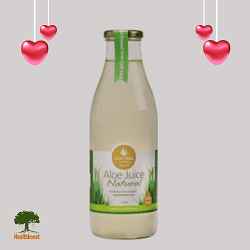ALOE VERA:
 Aloe Vera, or Aloe barbadensis, is a thick, short-stemmed plant that stores water in its leaves. It is best known for treating skin wounds, but it also has various other uses that could significantly benefit your health. The leaves of an Aloe Vera plant are filled with a soft clear gel that’s been praised for its hydrating effect and other medicinal favors.
Aloe Vera, or Aloe barbadensis, is a thick, short-stemmed plant that stores water in its leaves. It is best known for treating skin wounds, but it also has various other uses that could significantly benefit your health. The leaves of an Aloe Vera plant are filled with a soft clear gel that’s been praised for its hydrating effect and other medicinal favors.
Aloe Vera has a long history of being used for medicinal purposes, dating back to ancient Egypt. The plant is native to Southern Europe, North Africa, and Canary Islands. Today, Aloe Vera is grown in tropical climates worldwide.
The Healthful Plant Compounds
The pharmaceutical, cosmetic, and food industries use Aloe Vera widely, and the plant has an estimated annual market value of $13 billion globally.
Aloe Vera is known for its pointed, thick, and fleshy green leaves, which may grow to about 12-19 inches (30-50 centimeters) in length. Each leaf contains a slimy tissue that stores water, and this makes the leaves thick. This water filled tissue is the “gel” that you may associate with Aloe Vera products. The gel contains most of the beneficial bioactive compounds in the plant, including:
- Amino acids,
- Antioxidants,
- Vitamins,
Proven Health Benefits
Antioxidant and Antibacterial Attributes
Antioxidants are essential for health. Aloe Vera gel contains powerful antioxidants belonging to a large family of substances known as polyphenols. These polyphenols, along with various other compounds in Aloe Vera, help resist the growth of some particular bacteria that can cause infections in your body.
Aloe Vera is known for its antiviral, antibacterial, and antiseptic attributes. This is part of why it may help heal your wounds and aid your skin diseases.
Accelerates Wound Healing
You can use Aloe Vera as a topical treatment, rubbing it onto your skin rather that consuming it. In fact, it has a long history of use in aiding sores, and especially burns, including sunburn.
The United States Pharmacopeia describe Aloe Vera preparations as a skin protectant as early as 1810-1820. Reviews of studies suggest that it is an efficient topical medication for first and second degree burns. For instance, a review of experimental research found that Aloe Vera could reduce the healing time of burns by around 10 days compared with traditional medication. It also helped prevent itching, redness, and infections.
Reduces Dental Plaque
Diseases of the gum and tooth decay are very common health problems. One of the best ways to resist these conditions is to reduce the buildup of plaque on the teeth.
In a mouth rinse research of 300 healthy people, researchers compared 100% pure Aloe Vera juice with the conventional mouthwash ingredient chlorhexidine. After 5 days of use, the Aloe Vera mouth rinse appeared to be just as effective as chlorhexidine in lessening dental plaque. Another research found similar benefits of Aloe Vera mouth rinse over a 20-30 day period. Aloe Vera is effective in destroying the plaque producing bacteria Streptococcus mutans in your mouth, as well as the yeast Candida albicans.
Helps Treat Mouth Ulcers
You may have experienced mouth ulcers at some point in your life. These may usually form underneath your lip, inside your mouth, and last for about a week.
Studies have shown that Aloe Vera medication can accelerate the healing of mouth ulcers. For instance, a 7 day research of 185 people with frequent mouth ulcers, applying Aloe Vera patch to the area was efficient in reducing the size of the ulcers. In another research, Aloe Vera gel not only accelerated the healing of mouth ulcers, it also decreased the pain associated with them.
Minimizes Constipation
Aloe Vera may also help aid constipation. This time it is the latex, not the gel that provides the favors. The latex is a sticky yellow remainder present right under the skin of the leaf.
The key compound responsible for this effect is called aloin, or barbaloin, which has well-known laxative effects.
Improves Skin and Prevents Wrinkles
There is some evidence to point out that topical Aloe Vera gel can slow down aging of your skin. In a 2009 study of 25 females over the age of 45, taking Aloe Vera gel orally increased collagen production and enhanced skin elasticity over a 90-day period.
Reviews also suggest that Aloe Vera can enhance skin integrity and help your skin retain moisture, which could benefit your dry skin conditions.
Lowers Blood Sugar Levels
You can also use Aloe Vera as a treatment for diabetes. This is because it may improve insulin sensitivity and help enhance blood sugar management. For example, a review of 10 studies found that Aloe Vera could have benefits for people with prediabetes or type 2 diabetes due to its effects on glycemic control.
Summary
The National Center for Complementary and Integrative Health(NCCIH) say that topical use of Aloe Vera is likely safe. You can use bottled Aloe Vera gel or take it directly from the leaf of an aloe plant. Aloe Vera juice has different uses to Aloe Vera gel. Oral options should contain decolorized whole leaf extract of Aloe Vera to maximize the benefits. However, you should always speak to your doctor before using Aloe Vera products to aid a condition.
